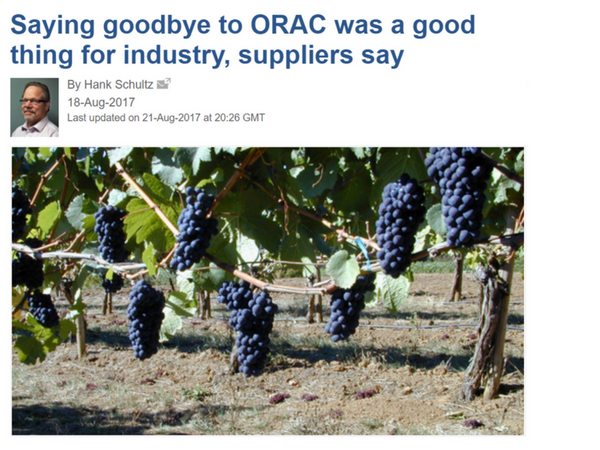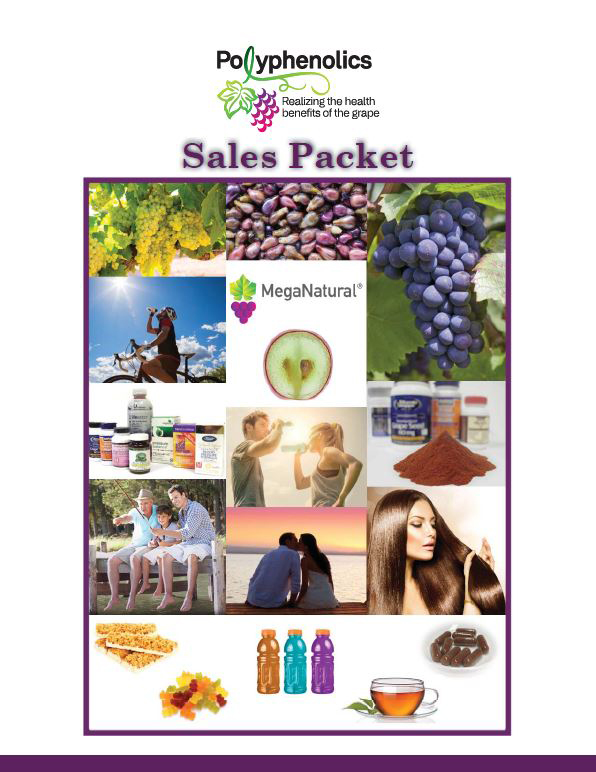For marketers of premium, high-antioxidant nutraceuticals, such as Polyphenolics’ MegaNatural grape seed extracts, the shutdown of the USDA’s ORAC database was just one more reason to focus on the scientifically substantiated health properties of their specific ingredients. NutraIngredients-USA invited Polyphenolics President James Kennedy, PhD, to share his thoughts on how the absence of the ORAC database has impacted Polyphenolics’ marketing.
The ORAC database was used to report on the antioxidant content of an ingredient. But writer Hank Schultz noted that while these measures weren’t frivolous, marketers often equated, “higher values with greater health potential, without underlying science to back that claim.” Since its shutdown five years ago, Schultz reported that the response by marketers of ingredients with high antioxidant activity has been, “to focus on the specific benefits of their products and let the antioxidant potential of these products provide an unspoken, healthful halo around the marketing message.”
With its ongoing ingredient-specific research, and emphasis on transparency and efficacy, Polyphenolics has always embraced this approach. Kennedy told NutraIngredients-USA, “To the extent that we as humans are constantly dealing with oxidative stress then the term ‘antioxidant’ will always have meaning. At the cellular level, there is a strong desire to maintain ‘redox homeostasis,’ the process of maintaining an oxidative balance within our cells. When we deviate from homeostasis on the oxidative side, our cells generate reactive oxygen species (ROS).”
High ROS levels in the body have the long-term effects of inflammation and cellular damage, which may lead to cancer, cardiovascular disease and neurodegenerative diseases. Factors including stress, diet and lifestyle choices may reduce the body’s natural defenses to oxidation.
Schultz wrote that, “While a marketer can no longer claim that their ultra-high ORAC value ingredient will resolve these conditions, it is still true that botanical ingredients can have beneficial effects in this area.”
Much of the research on Polyphenolics’ patented ingredients has focused on mechanism of action. Kennedy said, “Eliminating the ROS that leads to inflammation can be important in maintaining long-term health. There is no question that certain botanicals and extracts can be effective at reducing ROS. Supplementation with grape seed extracts such as MegaNatural–Gold for example, has been shown to reduce the concentration of oxidation markers that lead to inflammation. They are able to do this because MegaNatural–Gold contains an abundance of vicinal dihydroxy-substituted phenolics which are extremely effective at reacting with ROS.”
Polyphenolics has done a great deal of work to protect the integrity of, and science supporting, its patented ingredients.
MegaNatural-Gold is a high-quality grape seed extract made of pure grape seeds, with no skins, stems or carriers. It has been shown in studies to protect blood serum components against oxidation and remains active in the bloodstream for over four hours.




